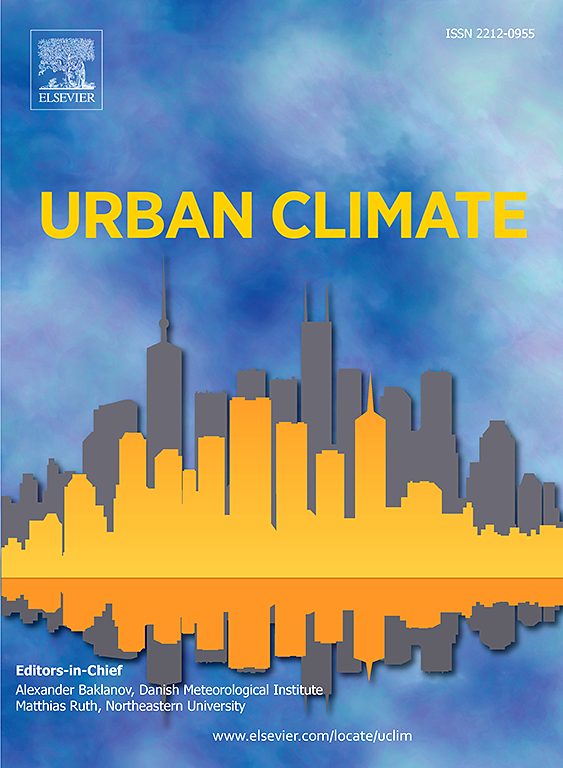Can urban green space improve carbon emission performance? Double test based on efficiency and spatial economics
IF 6
2区 工程技术
Q1 ENVIRONMENTAL SCIENCES
引用次数: 0
Abstract
At present, the great potential of urban green space (UGS) in adapting to climate change and promoting low-carbon development of society has been underestimated. This study introduces a two-dimensional evaluation framework that assesses the role of UGS in improving carbon emission performance (CEP) from an efficiency perspective and analyzes its spatial effects on CEP from a spatial economics perspective. Using panel data from 282 Chinese cities from 2006 to 2021, this study first compares traditional carbon emission performance (CEP-T) with CEP considering green space (CEP-G) using the Epsilon-based measure model with undesirable outputs (UN-EBM). It then explores the direct effect and spatial spillover effect of UGS on CEP-T through the Spatial Durbin Model (SDM). The results show that: (1) In terms of the efficiency dimension, UGS can effectively improve CEP at the national, regional, and city levels. CEP improved more strongly at the city level than at the regional and national levels, with 280 cities improving their CEP, and southern cities improving more than northern regions. (2) In terms of the spatial economics dimension, UGS can have a positive impact on local CEP improvement. At the same time, UGS also has a spatial spillover effect, transcending urban boundaries to improve the CEP of neighboring areas. In addition, there is heterogeneity in the improvement of UGS on CEP, with stronger effects in the south and weaker effects in the north. These findings provide important implications for policymakers to enhance low-carbon development and address climate change through UGS.
城市绿地能否改善碳排放绩效?基于效率和空间经济学的双重检验
目前,城市绿地在适应气候变化、促进社会低碳发展方面的巨大潜力被低估。本研究引入二维评价框架,从效率视角评估了UGS提高碳排放绩效的作用,并从空间经济学视角分析了UGS对CEP的空间效应。利用2006年至2021年中国282个城市的面板数据,本研究首先使用基于epsiln的不期望产出测量模型(UN-EBM)比较了传统碳排放绩效(CEP- t)与考虑绿地的CEP (CEP- g)。然后通过空间Durbin模型(spatial Durbin Model, SDM)探讨了UGS对cept的直接效应和空间溢出效应。结果表明:(1)在效率维度上,UGS在国家、区域和城市层面均能有效提升CEP;城市层面的CEP改善强于区域和国家层面,有280个城市的CEP改善,南方城市的改善幅度大于北方地区。(2)在空间经济维度上,UGS对当地CEP改善具有正向影响。同时,UGS还具有空间溢出效应,可以超越城市边界,提升周边地区的CEP。此外,UGS对CEP的改善存在异质性,南方的作用较强,北方的作用较弱。这些发现为决策者通过UGS加强低碳发展和应对气候变化提供了重要启示。
本文章由计算机程序翻译,如有差异,请以英文原文为准。
求助全文
约1分钟内获得全文
求助全文
来源期刊

Urban Climate
Social Sciences-Urban Studies
CiteScore
9.70
自引率
9.40%
发文量
286
期刊介绍:
Urban Climate serves the scientific and decision making communities with the publication of research on theory, science and applications relevant to understanding urban climatic conditions and change in relation to their geography and to demographic, socioeconomic, institutional, technological and environmental dynamics and global change. Targeted towards both disciplinary and interdisciplinary audiences, this journal publishes original research papers, comprehensive review articles, book reviews, and short communications on topics including, but not limited to, the following:
Urban meteorology and climate[...]
Urban environmental pollution[...]
Adaptation to global change[...]
Urban economic and social issues[...]
Research Approaches[...]
 求助内容:
求助内容: 应助结果提醒方式:
应助结果提醒方式:


